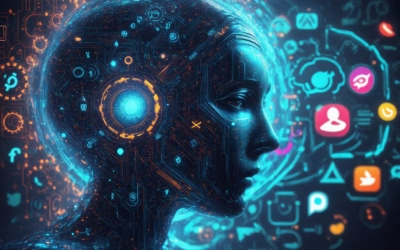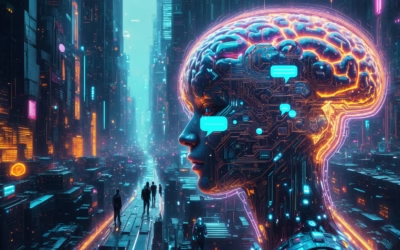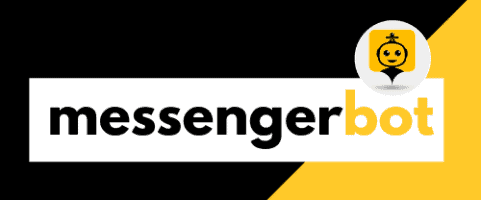In today’s rapidly evolving digital landscape, where chatbots are transforming customer experiences across industries, the demand for skilled chatbot experts is skyrocketing. As businesses strive to deliver seamless, personalized interactions, mastering the art of chatbot expertise has become a lucrative and highly sought-after career path. This comprehensive guide delves into the world of chatbot professionals, unveiling the roles, responsibilities, and essential skills required to excel in this dynamic field. From understanding the intricacies of chatbot development and implementation to exploring the vast array of career opportunities and earning potential, this article serves as a comprehensive roadmap for aspiring chatbot specialists. Whether you’re a newcomer seeking to embark on this exciting journey or an experienced professional aiming to elevate your expertise, this in-depth exploration will equip you with the knowledge and insights necessary to thrive in the realm of chatbot mastery.
I. What is a Chatbot Expert?
A. Chatbot Specialist Definition
A chatbot expert, also known as a chatbot specialist or conversational AI developer, is a professional who specializes in designing, building, and optimizing chatbots and virtual assistants powered by artificial intelligence (AI). These experts possess a deep understanding of natural language processing (NLP), machine learning (ML), and conversational user experience (UX) principles.
Chatbot experts are responsible for creating intelligent chatbots that can engage in human-like conversations, understand user intents, and provide accurate and contextual responses. They leverage advanced technologies such as NLP, ML, and conversational AI to develop chatbots that can handle complex queries, automate tasks, and deliver personalized experiences across various platforms and channels.
B. Chatbot Expert Roles and Responsibilities
The roles and responsibilities of a chatbot expert typically include:
- Designing and developing chatbots and virtual assistants using AI and NLP technologies
- Training and fine-tuning chatbot models using machine learning algorithms and conversational data
- Implementing natural language understanding (NLU) and natural language generation (NLG) capabilities
- Integrating chatbots with various platforms, messaging apps, and third-party services
- Optimizing chatbot performance, conversational flows, and user experiences
- Conducting user testing, gathering feedback, and iterating on chatbot designs
- Collaborating with cross-functional teams, including developers, designers, and subject matter experts
- Staying up-to-date with the latest advancements in chatbot technology and industry best practices
Developing a professional-grade chatbot can be a significant investment, with costs ranging from $10,000 to over $100,000, depending on factors like complexity, integration requirements, and desired features. Basic chatbots with simple conversational abilities may cost around $10,000-$30,000, while advanced AI-powered virtual assistants with natural language processing (NLP), machine learning (ML), and multi-channel integration can cost $50,000-$100,000 or more. Ongoing maintenance, updates, and hosting fees can add $5,000-$20,000 annually. Key cost drivers include NLP/ML model training, conversational design, third-party integrations, and development team expertise. Reputable AI companies like IBM, Google, Amazon, and Microsoft offer enterprise-grade chatbot solutions with varying pricing models based on usage, features, and support levels.

How to Become a Chatbot Expert?
A. Chatbot Expert Certification and Training
Becoming a proficient chatbot expert requires a combination of education, training, and hands-on experience. While there are no formal degree programs specifically dedicated to chatbot development, individuals can pursue relevant fields such as computer science, artificial intelligence, or data science.
However, several organizations and educational institutions offer specialized chatbot expert certification programs and courses to equip professionals with the necessary skills. These programs cover topics such as natural language processing (NLP), machine learning, conversational design, and chatbot development frameworks like Dialogflow, Amazon Lex, and Microsoft Bot Framework.
Some popular chatbot expert certification programs include:
- Chatbot Specialist Certification by IBM
- Conversational AI Certification by Google
- Certified Conversational AI Developer by Pega
- Chatbot Development Certification by Udemy
In addition to certifications, aspiring chatbot experts can enroll in online courses, attend workshops, and participate in hackathons to gain practical experience in chatbot development.
B. Chatbot Developer Skills and Expertise
To excel as a chatbot expert, professionals should possess a diverse set of skills and expertise. Some essential skills include:
- Natural Language Processing (NLP): Understanding and implementing NLP techniques to enable chatbots to comprehend and generate human-like responses.
- Machine Learning and AI: Proficiency in machine learning algorithms and AI models to train and optimize chatbot performance.
- Conversational Design: Ability to design intuitive and engaging conversational flows that provide a seamless user experience.
- Programming Languages: Proficiency in programming languages such as Python, Java, or JavaScript, depending on the chatbot development framework.
- Data Analysis: Skills in data analysis and data visualization to interpret user interactions and optimize chatbot performance.
- Project Management: Ability to manage chatbot development projects, collaborate with cross-functional teams, and meet project deadlines.
- Domain Knowledge: Understanding of the specific industry or domain in which the chatbot will be deployed, such as healthcare, finance, or e-commerce.
Additionally, successful chatbot experts possess strong problem-solving, communication, and critical thinking skills. They stay updated with the latest advancements in conversational AI, such as the integration of generative AI models like Brain Pod AI, to enhance chatbot capabilities and deliver more human-like interactions.
How Much Do Chatbot Experts Make?
A. Chatbot Consultant Salary and Job Outlook
As the demand for chatbot experts continues to rise, the earning potential and job outlook in this field remain promising. The average chatbot developer salary in the United States is around $100,000 per year, with top earners making over $150,000 annually. However, salaries can vary significantly based on factors such as experience, location, industry, and specific job roles.
Chatbot consultants, who provide strategic guidance and implementation services to businesses, often command higher salaries due to their expertise and advisory role. According to Glassdoor, the average base pay for a chatbot consultant in the U.S. is around $120,000 per year, with the potential to earn significantly more based on performance and project scope.
The job outlook for chatbot experts is equally promising, with the Bureau of Labor Statistics projecting a 25% growth rate for software developers and related roles between 2021 and 2031, much faster than the average for all occupations. As businesses across various industries continue to adopt chatbots and conversational AI for customer service, lead generation, and process automation, the demand for skilled professionals in this field is expected to surge.
B. Factors Affecting Chatbot Expert Pay
Several key factors can influence the earning potential of chatbot experts, including:
- Experience and Expertise: Chatbot experts with extensive experience, specialized skills (such as natural language processing or machine learning), and a proven track record of successful implementations can command higher salaries.
- Industry and Company Size: Certain industries, such as finance, healthcare, and e-commerce, tend to pay higher salaries for chatbot experts. Similarly, larger enterprises with more significant budgets for AI and automation may offer more lucrative compensation packages.
- Geographic Location: Salaries for chatbot experts can vary significantly based on the cost of living and industry concentration in different regions. Major tech hubs like Silicon Valley, New York City, and Seattle often offer higher salaries to attract top talent.
- Certifications and Education: Professionals with relevant certifications, such as those offered by Google Dialogflow or IBM, as well as advanced degrees in computer science, data science, or related fields, can potentially command higher salaries.
- Entrepreneurial Ventures: Chatbot experts who launch their own consulting firms, develop proprietary chatbot solutions, or offer training and educational services can potentially earn significantly more than traditional salaried positions, depending on their business success.
As the chatbot and conversational AI landscape continues to evolve, staying up-to-date with the latest technologies, best practices, and industry trends will be crucial for chatbot experts to maintain their competitive edge and maximize their earning potential.
IV. What Is Elon Musk Involved in Chatbot?
A. Elon Musk’s AI and Chatbot Ventures
Elon Musk, the visionary entrepreneur behind companies like Tesla and SpaceX, has long been a vocal proponent of artificial intelligence (AI) and its potential impact on various industries. While his primary focus lies in pioneering advancements in electric vehicles and space exploration, Musk has also ventured into the realm of chatbots and conversational AI.
One of Musk’s most significant AI initiatives is Anthropic, a research company dedicated to developing safe and ethical artificial intelligence systems. Anthropic has been working on developing advanced language models and chatbots that can engage in natural conversations while adhering to principles of transparency, safety, and ethical behavior.
Additionally, Musk co-founded OpenAI, a non-profit research organization focused on advancing artificial intelligence in a responsible and beneficial manner. While OpenAI has not explicitly developed chatbots, their work on natural language processing and large language models has contributed to the advancement of conversational AI technologies.
Musk’s companies, particularly Tesla, have also explored the use of chatbots and virtual assistants to enhance customer service and support experiences. For instance, Tesla has integrated chatbots into their mobile app and website to assist customers with common inquiries and tasks.
B. Chatbot Expert Opportunities in Musk’s Companies
As Elon Musk’s companies continue to push the boundaries of innovation, there are numerous opportunities for chatbot experts and conversational AI professionals to contribute their expertise. Here are some potential avenues:
- Tesla: With a growing focus on enhancing customer experiences, Tesla could benefit from chatbot experts who can develop intelligent virtual assistants to handle customer inquiries, provide support, and streamline various processes.
- Anthropic: As a research company dedicated to developing safe and ethical AI systems, Anthropic could offer exciting opportunities for chatbot experts to work on cutting-edge conversational AI technologies, focusing on areas like natural language understanding, dialogue management, and ethical AI principles.
- SpaceX: While not directly related to chatbots, SpaceX’s ambitious projects in space exploration could potentially leverage conversational AI for mission control, astronaut support, or even future space tourism applications.
- Neuralink: Musk’s brain-computer interface company, Neuralink, could potentially explore the integration of conversational AI with their technology, opening up new frontiers for human-machine interaction and communication.
- The Boring Company: While primarily focused on infrastructure and transportation solutions, The Boring Company could benefit from chatbot experts to enhance customer support, automate processes, and provide informative virtual assistants for their projects.
As Elon Musk’s companies continue to push the boundaries of innovation, the demand for skilled chatbot experts and conversational AI professionals is likely to increase, presenting exciting opportunities for those passionate about this field.

A. Chatbot Expert Job Descriptions and Requirements
As the demand for chatbot and conversational AI solutions continues to surge across industries, the role of a chatbot expert has become increasingly crucial. These professionals are responsible for designing, developing, and implementing intelligent chatbots that can engage in natural language interactions with users, streamlining customer support, sales, and various other business processes.
Typical job descriptions for chatbot experts may include the following responsibilities:
- Analyzing business requirements and developing chatbot strategies aligned with organizational goals
- Designing conversational flows and dialogue trees for chatbots
- Developing and integrating chatbots using platforms like Messenger Bot, Dialogflow, or IBM Watson Assistant
- Implementing natural language processing (NLP) and machine learning (ML) models for intent recognition and entity extraction
- Integrating chatbots with backend systems, APIs, and databases
- Testing and optimizing chatbot performance, ensuring smooth user experiences
- Training and maintaining chatbot knowledge bases and conversational data
- Analyzing chatbot usage metrics and user feedback to identify areas for improvement
To qualify for chatbot expert roles, candidates typically need a strong background in computer science, software engineering, or a related field. Expertise in programming languages like Python, Java, or JavaScript is essential, along with proficiency in AI/ML frameworks such as TensorFlow or PyTorch. Additionally, experience with chatbot platforms, NLP techniques, and conversational design principles is highly valued.
B. Chatbot Expert Career Growth and Advancement
The field of chatbot development offers a wide range of career growth opportunities for skilled professionals. As businesses continue to embrace conversational AI, the demand for experts in this domain is expected to rise steadily. Here are some potential career paths and advancement opportunities for chatbot experts:
- Lead Chatbot Developer: With extensive experience in chatbot development, experts can progress to lead developer roles, overseeing teams of chatbot engineers and architects, managing complex projects, and driving innovation within the organization.
- Conversational AI Architect: Highly skilled chatbot experts can transition into architectural roles, designing and implementing enterprise-level conversational AI solutions that integrate with multiple systems and platforms.
- Conversational AI Consultant: Experienced chatbot experts can leverage their expertise as independent consultants, advising businesses on chatbot strategies, implementations, and best practices.
- Conversational AI Product Manager: Those with a strong understanding of both technical and business aspects can take on product management roles, defining product roadmaps, prioritizing features, and driving the success of conversational AI offerings.
- Conversational AI Researcher: For those with a passion for cutting-edge technologies, research roles in academia or industry labs can provide opportunities to contribute to the advancement of conversational AI, NLP, and related fields.
Furthermore, as the applications of conversational AI expand into areas like healthcare, finance, and e-commerce, chatbot experts can specialize in domain-specific solutions, becoming subject matter experts in their respective industries.
To stay ahead in this rapidly evolving field, continuous learning and upskilling are essential. Chatbot experts should stay updated on the latest advancements in AI, NLP, and conversational design, as well as emerging technologies like AI image generation and AI writing that can potentially enhance chatbot capabilities.
VI. Chatbot Expert Apps and Tools
A. Top Chatbot Expert Apps and Software
As a chatbot expert, I have access to a wide range of cutting-edge chatbot apps and software that enable me to design, develop, and deploy highly sophisticated conversational AI solutions. Some of the top chatbot platforms I frequently utilize include:
- Brain Pod AI: A cutting-edge generative AI platform offering a suite of powerful tools, including a multilingual AI chat assistant, AI image generator, and AI writer, all designed to streamline the chatbot development process.
- IBM Watson Assistant: IBM’s industry-leading conversational AI platform, renowned for its advanced natural language processing capabilities and robust integration options.
- Microsoft Teams: A powerful collaboration platform that offers seamless integration with chatbots, enabling businesses to enhance team productivity and streamline workflows.
- Google’s Open Source Tools: Google provides a suite of open-source tools, including TensorFlow and Dialogflow, that empower chatbot experts to build and deploy advanced conversational AI solutions.
These cutting-edge chatbot apps and software offer a wealth of features and capabilities, such as natural language understanding, sentiment analysis, context awareness, and seamless integration with various platforms and services. By leveraging these powerful tools, I can create highly engaging and intuitive chatbot experiences that cater to diverse industries and use cases.
B. Free Chatbot Expert Tools and Resources
In addition to the premium chatbot apps and software, there are also numerous free tools and resources available to chatbot experts. These resources can be invaluable for learning, prototyping, and staying up-to-date with the latest trends and best practices in the field of conversational AI. Here are some notable free chatbot expert tools and resources:
- Brain Pod AI Demo: Experience the power of Brain Pod AI’s generative AI capabilities through their interactive demo, allowing you to explore and test their cutting-edge AI models.
- Dialogflow: Google’s free conversational AI platform, offering a user-friendly interface for building and deploying chatbots with natural language processing capabilities.
- Rasa: An open-source conversational AI framework that empowers developers to create contextual and personalized chatbot experiences.
- Botkit: A popular open-source developer tool for building and deploying chatbots across various messaging platforms, including Slack, Twilio, and Microsoft Teams.
- Messenger Bot Tutorials: Comprehensive guides and tutorials provided by Messenger Bot, offering step-by-step instructions for setting up and optimizing chatbots on their platform.
By leveraging these free chatbot expert tools and resources, I can continuously enhance my skills, experiment with new technologies, and stay ahead of the curve in the rapidly evolving field of conversational AI.
VII. Chatbot Expert Stores and Services
A. Chatbot Expert Consulting and Development Services
As chatbots continue to gain traction across industries, the demand for expert consulting and development services in this domain has skyrocketed. Chatbot experts offer a wide range of solutions, from strategic planning and design to full-fledged implementation and optimization of chatbot systems.
Prominent chatbot consulting firms, such as Accenture and IBM Watson, leverage their extensive experience and cutting-edge technologies to deliver tailored chatbot solutions. These services often include chatbot strategy development, conversational design, natural language processing (NLP) integration, and seamless deployment across various platforms.
For businesses seeking a more comprehensive approach, chatbot experts like Brain Pod AI offer end-to-end solutions, encompassing everything from multilingual AI chat assistants and AI image generation to AI writing and whitelabel generative AI services. These comprehensive offerings enable businesses to leverage the full potential of chatbots while streamlining their operations and enhancing customer experiences.
Additionally, many chatbot experts specialize in specific industries or use cases, such as healthcare, e-commerce, or customer service. By combining their domain expertise with cutting-edge chatbot technologies, these experts can deliver tailored solutions that address unique business challenges and drive tangible results.
B. Chatbot Expert Platforms and Marketplaces
In the ever-evolving chatbot landscape, several platforms and marketplaces have emerged, facilitating the connection between businesses and chatbot experts. These platforms serve as central hubs, enabling companies to discover, hire, and collaborate with top-tier chatbot developers, designers, and consultants from around the globe.
Platforms like Upwork and Fiverr offer a vast pool of freelance chatbot experts, catering to diverse project requirements and budgets. These marketplaces provide a convenient way for businesses to browse portfolios, read reviews, and hire the most suitable chatbot professionals for their specific needs.
Moreover, dedicated chatbot platforms, such as Pandorabots and Chatfuel, offer comprehensive ecosystems where chatbot experts can showcase their skills, collaborate on projects, and access a wide range of tools and resources. These platforms often feature chatbot templates, SDKs, and integration capabilities, empowering experts to build and deploy sophisticated chatbot solutions seamlessly.
As the chatbot industry continues to evolve, these platforms and marketplaces play a crucial role in connecting businesses with the right chatbot experts, fostering innovation, and driving the widespread adoption of conversational AI technologies across various sectors.





